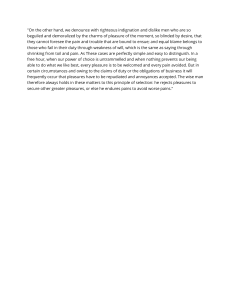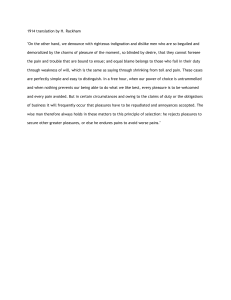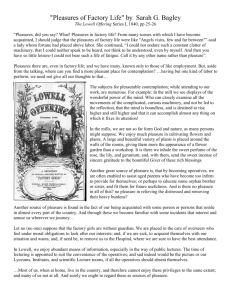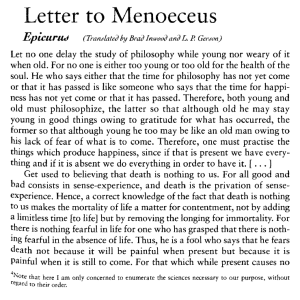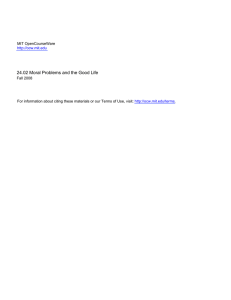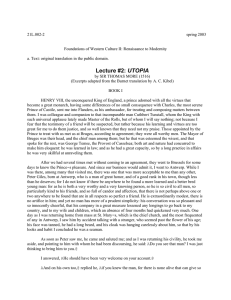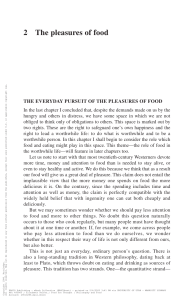24.00: Problems of Philosophy Prof. Sally Haslanger December 15, 2003
advertisement
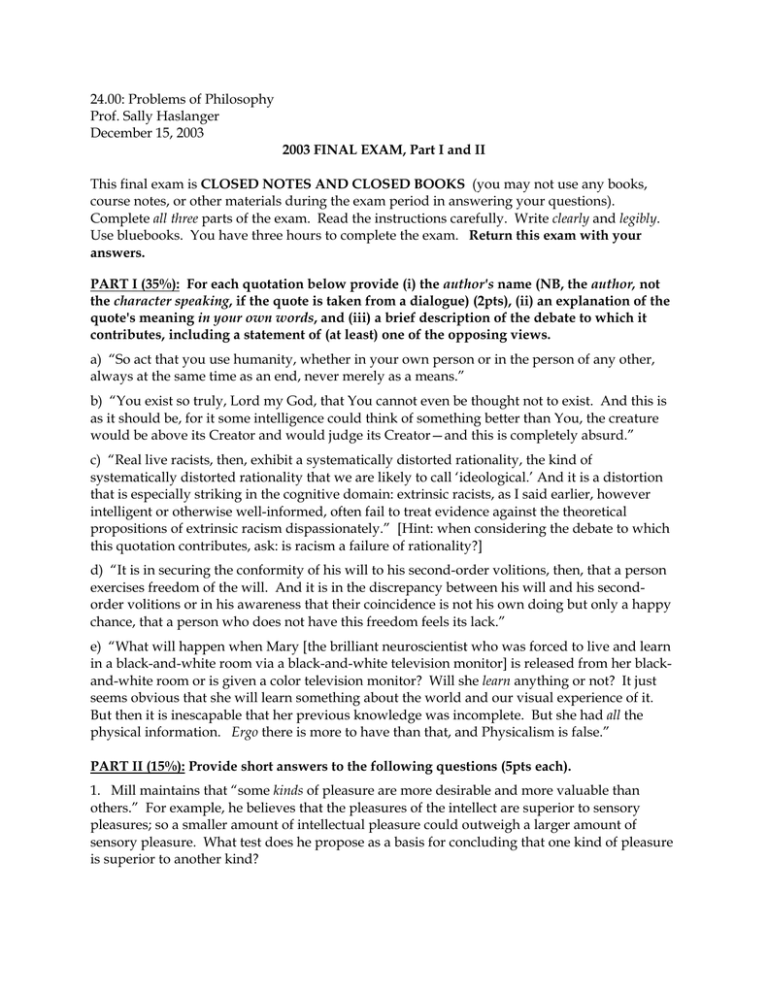
24.00: Problems of Philosophy Prof. Sally Haslanger December 15, 2003 2003 FINAL EXAM, Part I and II This final exam is CLOSED NOTES AND CLOSED BOOKS (you may not use any books, course notes, or other materials during the exam period in answering your questions). Complete all three parts of the exam. Read the instructions carefully. Write clearly and legibly. Use bluebooks. You have three hours to complete the exam. Return this exam with your answers. PART I (35%): For each quotation below provide (i) the author's name (NB, the author, not the character speaking, if the quote is taken from a dialogue) (2pts), (ii) an explanation of the quote's meaning in your own words, and (iii) a brief description of the debate to which it contributes, including a statement of (at least) one of the opposing views. a) “So act that you use humanity, whether in your own person or in the person of any other, always at the same time as an end, never merely as a means.” b) “You exist so truly, Lord my God, that You cannot even be thought not to exist. And this is as it should be, for it some intelligence could think of something better than You, the creature would be above its Creator and would judge its Creator—and this is completely absurd.” c) “Real live racists, then, exhibit a systematically distorted rationality, the kind of systematically distorted rationality that we are likely to call ‘ideological.’ And it is a distortion that is especially striking in the cognitive domain: extrinsic racists, as I said earlier, however intelligent or otherwise well-informed, often fail to treat evidence against the theoretical propositions of extrinsic racism dispassionately.” [Hint: when considering the debate to which this quotation contributes, ask: is racism a failure of rationality?] d) “It is in securing the conformity of his will to his second-order volitions, then, that a person exercises freedom of the will. And it is in the discrepancy between his will and his secondorder volitions or in his awareness that their coincidence is not his own doing but only a happy chance, that a person who does not have this freedom feels its lack.” e) “What will happen when Mary [the brilliant neuroscientist who was forced to live and learn in a black-and-white room via a black-and-white television monitor] is released from her blackand-white room or is given a color television monitor? Will she learn anything or not? It just seems obvious that she will learn something about the world and our visual experience of it. But then it is inescapable that her previous knowledge was incomplete. But she had all the physical information. Ergo there is more to have than that, and Physicalism is false.” PART II (15%): Provide short answers to the following questions (5pts each). 1. Mill maintains that “some kinds of pleasure are more desirable and more valuable than others.” For example, he believes that the pleasures of the intellect are superior to sensory pleasures; so a smaller amount of intellectual pleasure could outweigh a larger amount of sensory pleasure. What test does he propose as a basis for concluding that one kind of pleasure is superior to another kind? 2. What is the thesis of determinism? What is the thesis of indeterminism? Explain briefly how these two theses together set the problem of freewill. 3. State the "Uniformity of Nature Principle" (UN). Summarize briefly the (Humean) argument we considered purporting to show that there is no non-circular defense of it.
